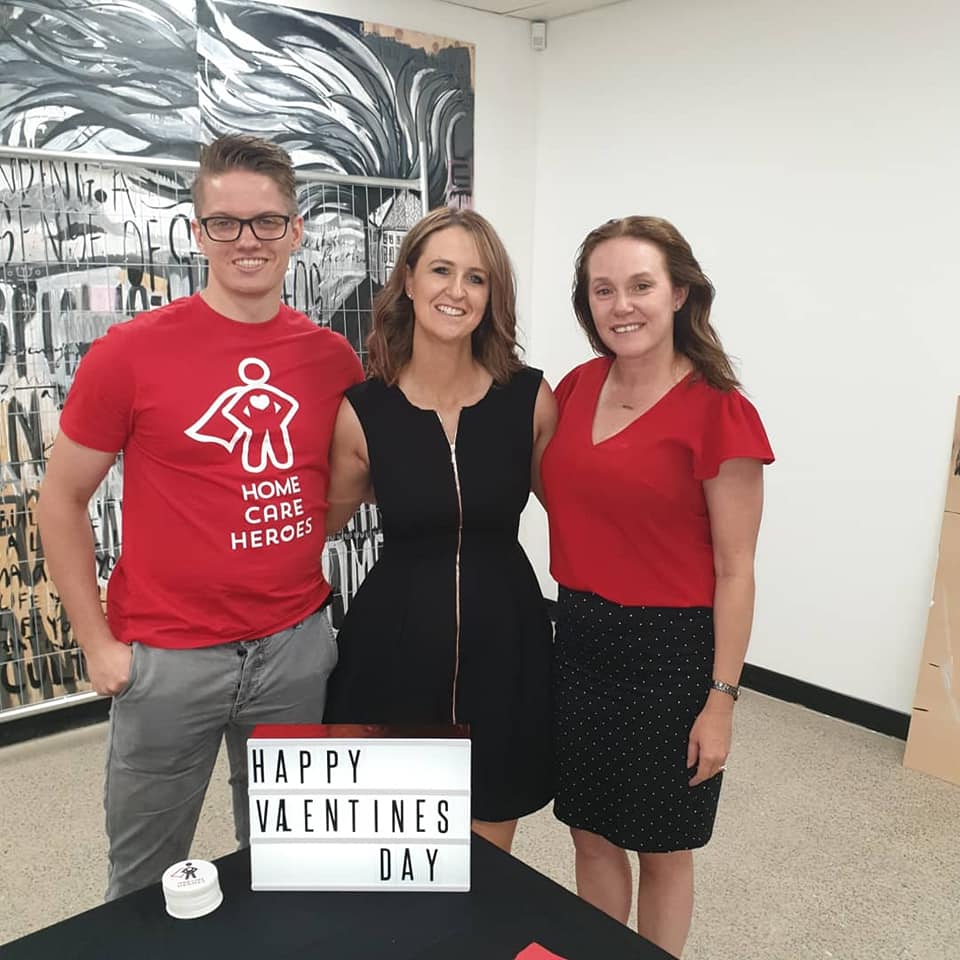Q & A - NDIS Support Coordinator | Jemma Grunsell-Kerr
Tuesday, June 18, 2019
1. First and foremost, what does a SC actually do?
Support Coordination is a category within a participant’s NDIS plan that is designed around building the capacity of the participant or participant’s family to navigate their way through the NDIS process. Some things that a Support Coordinator can assist with (there's plenty more) are:
- Helping Participant/'s Representative understand their NDIS plan plus their rights and responsibilities.
- Supporting Participant/'s Representative to use their choice and control by making informed decisions on reasonable and necessary supports etc.
- Support with time sensitive communication during crisis situations.
- Negotiate preferred services and prices, as well as develop service agreements and create service bookings with the chosen providers.
- Assist with housing arrangements.
- Coordinate NDIS and mainstream supports.
- Assist in supporting the participant/’s representative to arrange assessments and reports that are needed.
- Support with community connection.
- Help build and train the participant/’s representative to develop capacity, knowledge and skills to assist with achieving the participant’s goals as stated in the NDIS plan and other.
- Assist with all of the different reviews, complaints etc that may take place and getting involved the appropriate supports (E.g Advocacy, Legal Aid etc).
- Assistive Technology, Minor and Major home modification support / liaising.
- Family planning support.
2. What is the difference between an SC and a Plan manager?
Support Coordination is a support funded to eligible NDIS participants which is provided by a Support Coordinator who will assist the participant to implement their NDIS plan and set up vital services and supports whereas Plan Management is a fund management option that can be chosen where the Plan Manager takes on the responsibility of paying for the participant’s NDIS funded services and supports. So Support Coordinators coordinate NDIS and mainstream supports while Plan Managers pay the NDIS bills.
3. Top 3 things that show a SC is on the ball with their NDIS knowledge?
Within the NDIS it can be difficult for providers to stay current with their information as policies and procedures change so frequently, so sometimes a Support Coordinator can be very adamant with their information/ knowledge, but it may be out of date, so I would suggest the below three points.
- The Support Coordinator is willing to fact check certain concerns with NDIS and provide proof that what they are saying is correct. E.g email correspondence provided, specific information on current legislation etc.
- Ask a lot of questions and make information personal to the situation / participant and not communicating general NDIS information/ policy that may not be relevant as every situation is different.
- The Support Coordinator is willing to go into detail with discussion when asked questions and back it up with evidence instead of deflecting the question.
4. Your no 1 tip for Participants having issues with communicating with the NDIS?
If the participant has appropriate funds of Support Coordination within their plan then the Support Coordinator should be assisting with this, but trying to get direct communication details of the NDIS planner that is supporting the participant is the best, but if the participant is having to contact the hotline or the local office email address then I would suggest to just keep contacting and take note of the date, time, NDIS employee number and advice given during the communication.
The NDIS policy is that they need to respond within a "Reasonable and Necessary" timeframe, but this is a very open statement which most usually have a 3 month maximum turn around for answers of requests. If the participant/'s representatives feel they have not been communicated within this timeframe they can look at being supported by an Advocate to help them as the NDIS is governed under the Australian Consumer Law and the NDIS have shaped their policies around these laws as best as possible, but if the participant/'s representative does not feel appropriately supported or represented an Advocate or Legal Aid may be a suitable option.

5. How would participants go about having SC added to their plan if they don't already have it?
The first point is to simply request it. The NDIS will review if it is an appropriate support for the participant, I would recommend looking at the points I mentioned earlier that a Support Coordinator can assist with as it would be extremely beneficial to have evidence as to why the participant needs support for these points specifically that they cannot achieve with their current formal and informal supports.
If the need for a Support Coordinator is urgent then getting an advocate involved to support the participant may be appropriate and perhaps having an Advocate support in the review meetings etc to highlight why a Support Coordinator is necessary.
A link that is really beneficial to be able to find Advocacy services in your local area is https://disabilityadvocacyfinder.dss.gov.au/disability/ndap/.
Recent Posts
- My First Iftar Dinner 🌙🍽️
- Harmony Day at School – Laming-Town Stall
- Hearing Aids
- 🌟 Mini Holiday – Disney Cruise & New Zealand 🛳️✨
- Choice and Control: Having a say in your services 🌈
- 🎉 Fashion-Able Fashion Show: Elemental | A Day to Celebrate Inclusivity & Creativity 🌟✨
- Why Pronouns Matter 💬✨
- Marli's Blog: My Dream to Work in the Allied Health & Disability Space 🏥💙
- Marli's Blog: Self-Care 💖✨
- Stimming: My Way to Keep Calm and Focused ✨💫

